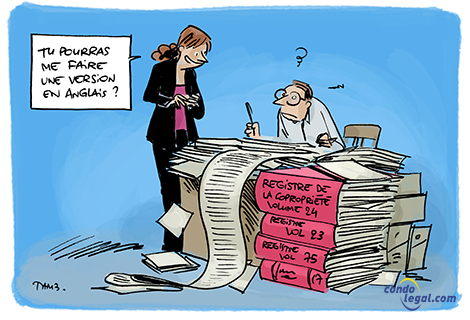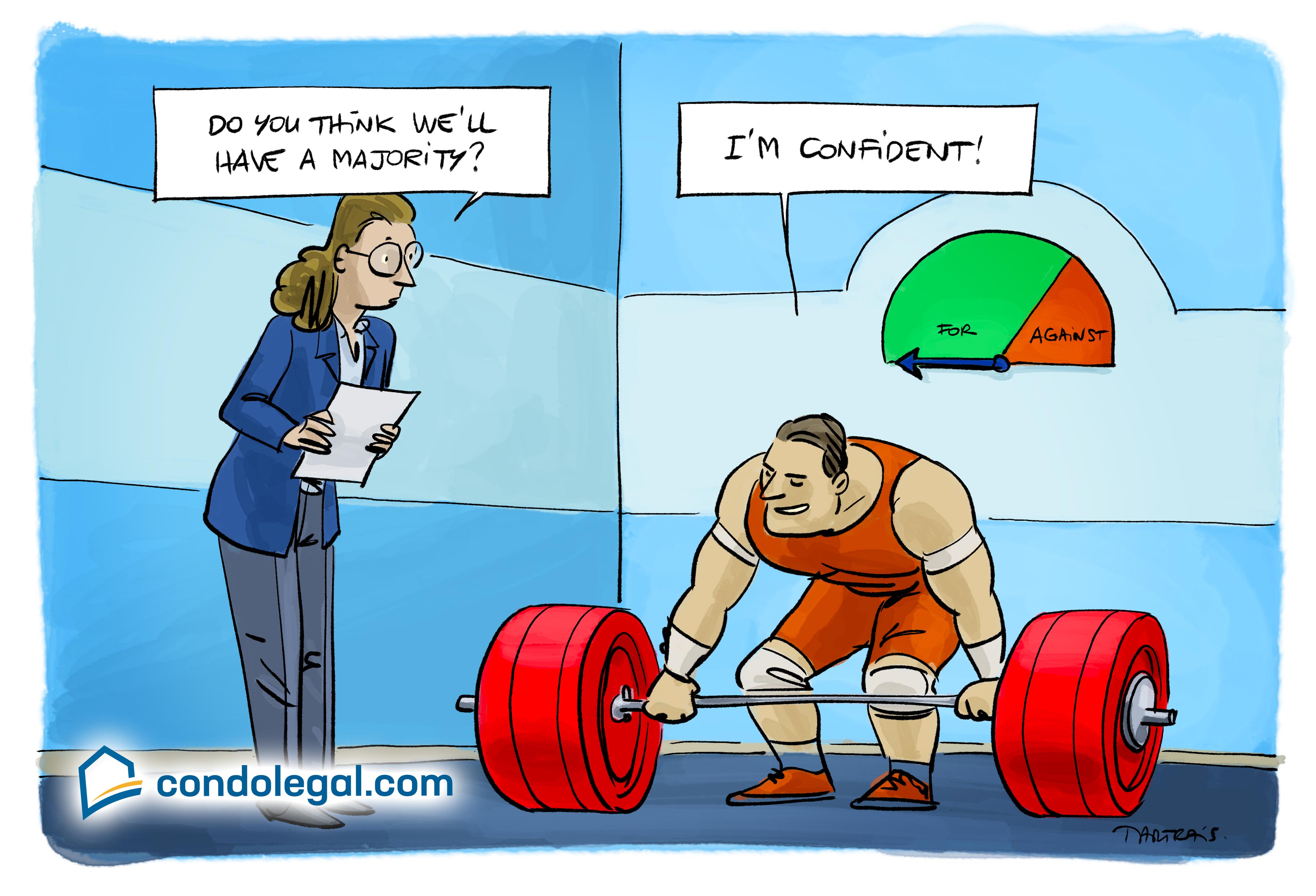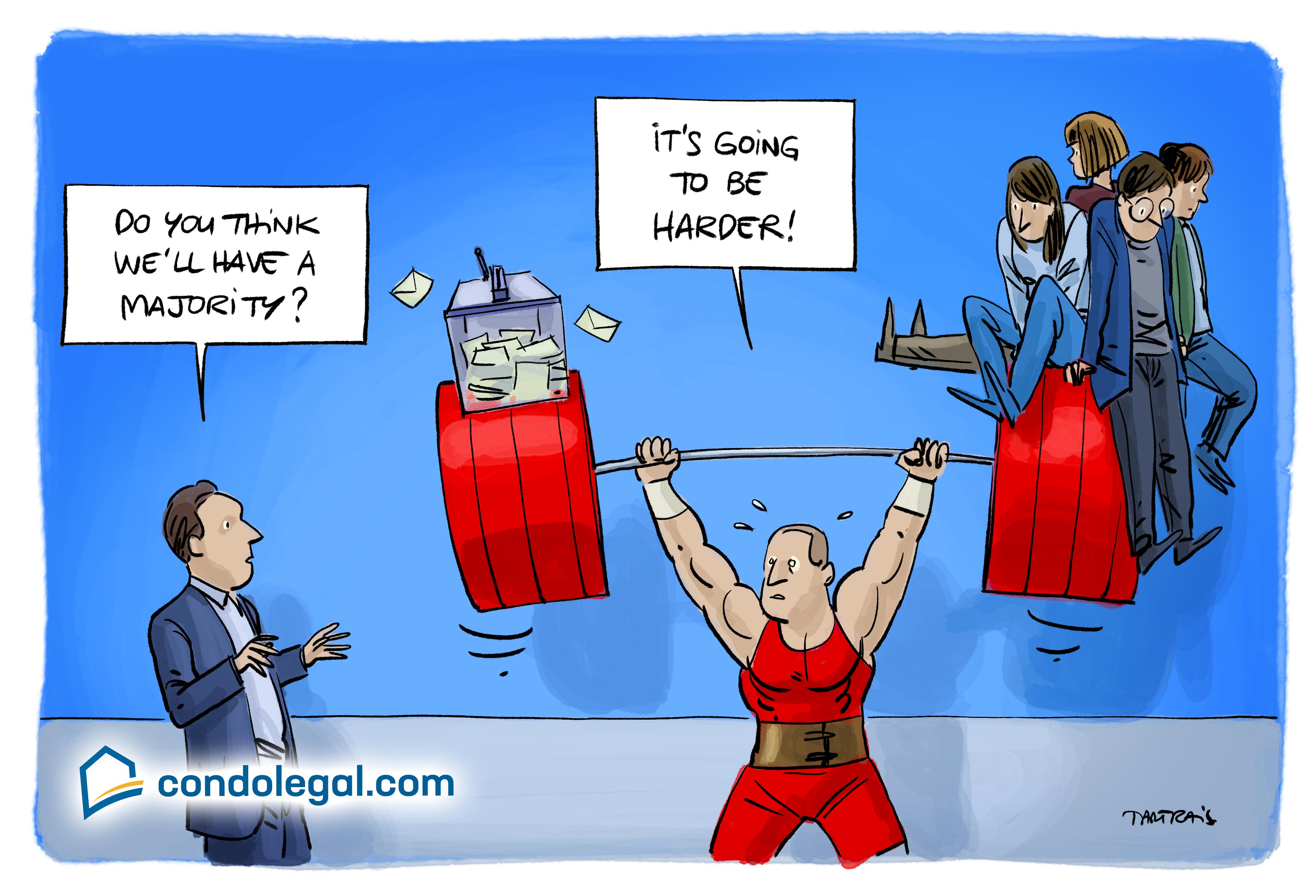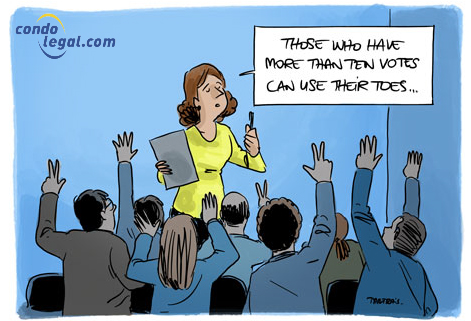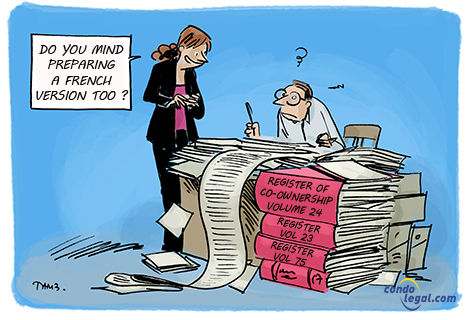
The minutes of the meeting are a document of paramount importance to ensure the execution of the decisions of the meeting. Therefore, the decisions taken by co-owners in a general meeting must be recorded and entered in the minutes. This document is essential for a co-ownership because it ensures the written preservation of the deliberations or consultation of the meeting of co-owners, as well as the result of each vote so that any co-owner and director can refer to it in due course. It also allows to ascertain that the general meeting was conducted in accordance with the rules. Given its importance, this document must respect a certain formalism.
Secretary of the meeting of co-owners
The appointment of a secretary of the meeting of co-owners is the obligatory prelude to the deliberations. It is in principle the By-Laws of the immovable that specifies the person responsible for taking notes on the debates of the meeting of co-owners, to draft and sign the minutes.
Drafting rules
The minutes must be drawn up in french in the present tense and in impersonal form by the secretary of the meeting, with impartiality and precision, following the chronological order of the conduct of the meeting. It is therefore important to transcribe in full the content of each resolution tabled, as well as the reasons for its adoption or rejection, and to indicate the result of the vote. In addition, it is required to mention the reservations expressed by the opposing co-owners on the regularity of decisions. Although the minutes must reflect the reality of the debates, it is in no way useful or recommended that the minutes record all the remarks made during the meeting.
In addition, the minutes usually mention the names of all persons who have submitted proposals on a given subject to the meeting. It may also refer to the persons who supported these proposals (called the second proposer), if any, without this being mandatory. Unless specifically mentioned (stated in the declaration of co-ownership) the need for a proposal to be supported, this procedure is not mandatory. Votes must also be accurately recorded, giving the result of the vote under the heading of each item on the agenda and indicating whether the proposal was adopted unanimously, by majority or if it was rejected. The minutes usually end with a reference to the time at which the sitting was adjourned.
Content
Drafted during the meeting of co-owners, it should include the following indications and elements:
It is also useful to annex the attendance sheet to the minutes so that may be verified whether the required quorum has been reached and calculate the majority required for the adoption of the resolutions voted upon.
Signing the Minutes
It is generally the responsibility of the president and of the secretary of the meeting to sign the minutes. The purpose of these signatures is to confirm that the contents of the minutes reflect the deliberations of the meeting of co-owners and the outcome of each decision taken by the meeting of co-owners.
Probative value
The minutes serve as tangible proof of the content of each resolution and thus lend probative value to decisions made during the assembly, provided no challenge is made within the set timeframe. Article 343 of the Civil code of Quebec states that the person responsible for maintaining the syndicate's records is authorized to provide copies of the documents they contain, including the minutes of the meeting of co-owners. The copies issued are proof of their content, and their authenticity is presumed, without the need to verify the signature or the authority of the person who issued them. Consequently, the approval of the minutes by the assembly of co-owners at the subsequent meeting is unnecessary, except to confirm what has been validly established in the absence of a challenge.
Transmission delay
The Act now requires the board of directors to communicate a copy of the minutes from the meeting to each of the co-owners. Under article 1102.1 of the Civil Code of Quebec, the board of directors of the syndicate must send to co-owners the minutes of any meeting of co-owners or any resolution in writing adopted by it, within 30 days of the meeting or the adoption of the resolution.
Failure to act expeditiously by the board of directors may be detrimental to the co-owners. It should not be forgotten that the decisions recorded in the minutes take effect when the meeting is adjourned. From that moment on, the countdown to the 90-day deadline to contest them is triggered. In this regard, any co-owner may apply to the court to cancel a decision of the meeting or, exceptionally, to amend it, within 90 days of the meeting being held.
Conservation
Once signed by the president and the secretary of the meeting of co-owners, they must be deposited in the register of the co-ownership so that the co-owners can have access to them. Article 1070 of the Civil Code of Québec provides that the syndicate has an obligation to keep at the disposal of the co-owners a copy of the minutes
The Board of Directors is the custodian of the registers containing the minutes of the meetings of the co-owners and their annexes. It is thus compelled to issue a copy or an extract to any co-owner who requests it. The declaration of co-ownership may provide a fee for the communication of such documents.
 WHAT YOU SHOULD KNOW! The minutes must be drafted during the meeting of co-owners and ideally signed at the very end - or shortly thereafter - by the president and the secretary of the meeting of co-owners. As soon as they are signed and kept in the registers of the co-ownership, these minutes are proof, until proof to the contrary, of the deliberations of the general meeting and of the results of each ballot (articles 342-343 of the Civil code of Quebec).
WHAT YOU SHOULD KNOW! The minutes must be drafted during the meeting of co-owners and ideally signed at the very end - or shortly thereafter - by the president and the secretary of the meeting of co-owners. As soon as they are signed and kept in the registers of the co-ownership, these minutes are proof, until proof to the contrary, of the deliberations of the general meeting and of the results of each ballot (articles 342-343 of the Civil code of Quebec).
 WHAT TO KEEP IN MIND: Minutes of the decisions taken at a meeting of co-owners must be drawn up after each session. In addition, the sheet attesting the presence of the co-owners or their mandatories at the general meeting must be attached to the latter.
WHAT TO KEEP IN MIND: Minutes of the decisions taken at a meeting of co-owners must be drawn up after each session. In addition, the sheet attesting the presence of the co-owners or their mandatories at the general meeting must be attached to the latter.
 WARNING! The minutes of the meeting of co-owners of the co-owners is an integral part of the register of co-ownership and must be made available to any co-owner upon request. It constitutes the material proof of the existence and content of each resolution submitted to the meeting of co-owners.
WARNING! The minutes of the meeting of co-owners of the co-owners is an integral part of the register of co-ownership and must be made available to any co-owner upon request. It constitutes the material proof of the existence and content of each resolution submitted to the meeting of co-owners.
